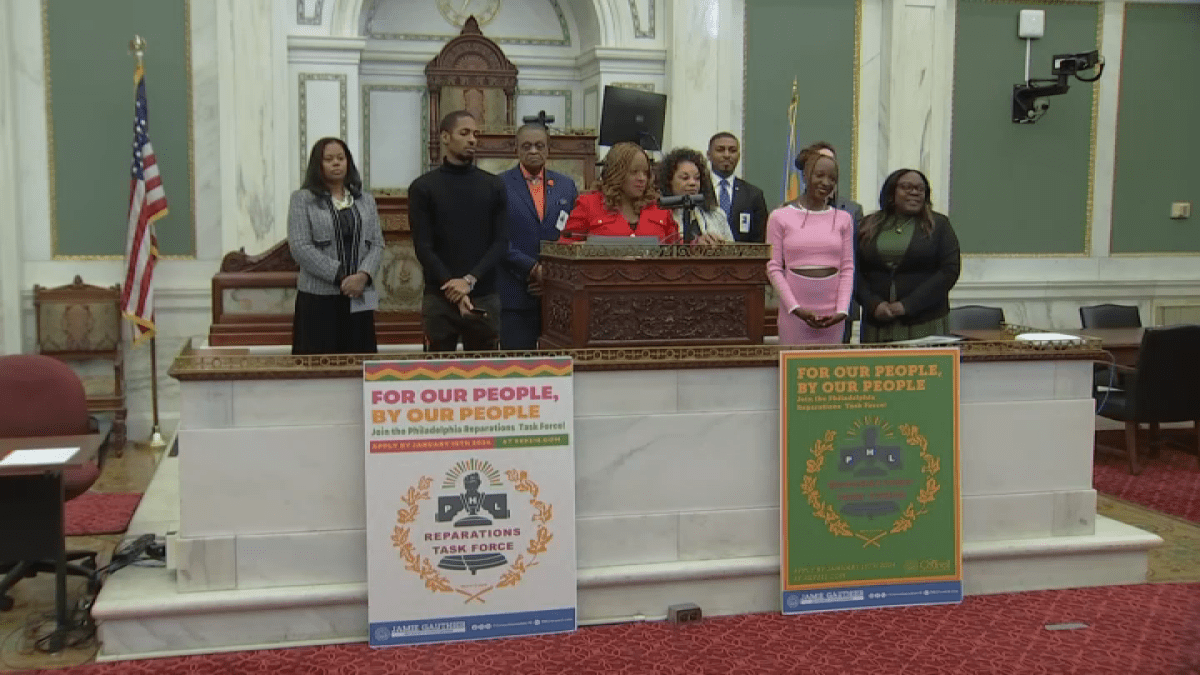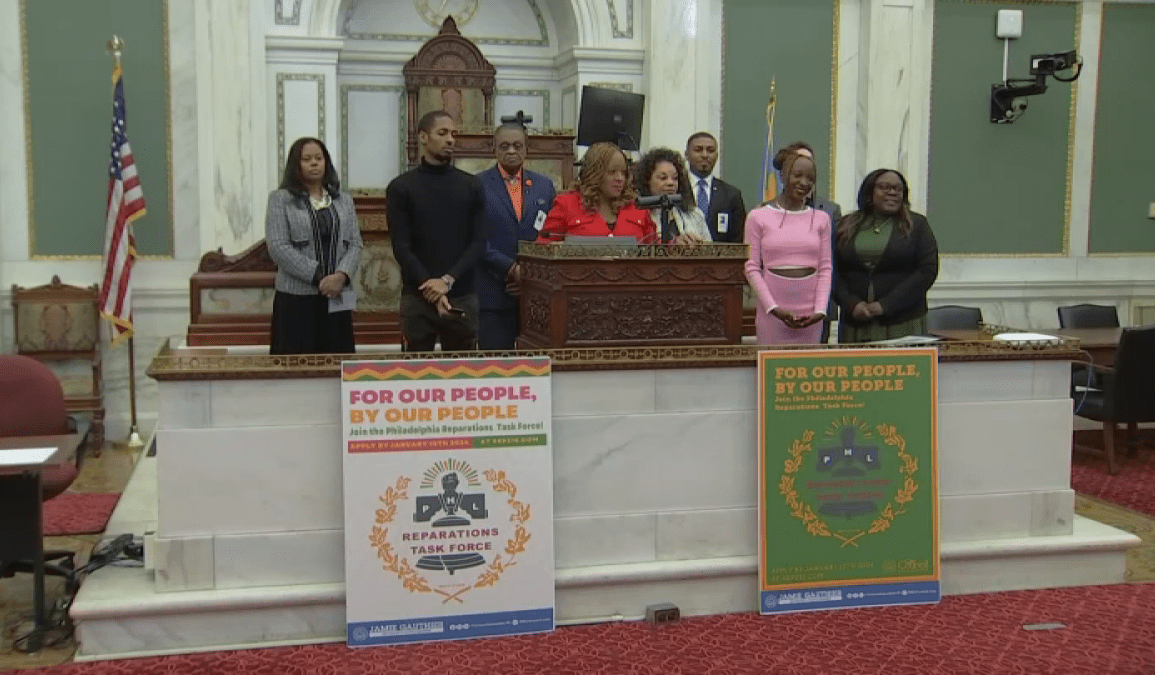
Philadelphia is starting the process of studying what reparations could look like for the city.
City Council announced on Friday the new details for the structure of the new Reparations Task Force and is inviting members of the Black community to join.
“Until we look into our past with the determination to uncover the entire truth – no matter how ugly or scary that truth may be – our nation’s original sin will continue to toxify the present and future,” Councilmember Jamie Gauthier said. “This work is for our people, by our people. I urge Philadelphians from the descendant community to apply to join the Philadelphia Reparations Task Force and join us as we examine our past and shape our future.”
Gauthier and Councilmember Kendra Brooks introduced the resolution authorizing the Philadelphia Reparations Task Force and over the summer City Council unanimously approved it.
It is just the beginning of an effort to address the past and pave the way for a better future in a city where more than 40 percent of residents are Black.
NBC10 spoke to the Director of the Center for Anti-Racism at Temple University Timothy Welbeck about the opportunity Philadelphia has.
“We’re really right now just beginning to see real traction around the idea of reparations. First even measuring what the potential impact of the period of enslavement and segregation was and what are ways to mitigate that impact,” said Welbeck.
Other states and municipalities have started the process. Evanston, Illinois, has a reparations program focused on housing with the city acknowledging past discriminatory housing policies and practices.
“What is unique about Philadelphia is it is in a position to be a leader in the nation around this particular issue and establishing the fact that not only are they acknowledging the harm of slavery but also that they’re looking for a way to begin correcting it among those who are in Philadelphia today,” said Welbeck.
With the task force just getting off the ground it’s unclear what reparations here might look like – focused on cash, housing, education or something else.
“In order to have the impact necessary to correct the historical harm of slavery there will need to be investment from the federal government and state governments,” Welbeck added. “A city like Philadelphia I just don’t believe has the resources to adequately address something at the level it needs to be addressed.”
The task force will look into different issues including, education, health and wellness and criminal and legal justice.
“Every day we can see the ongoing impact of slavery and racist policies on the people of Philadelphia,” said Councilmember at-large Kendra Brooks. “Despite the heroic efforts of Black leaders and the astounding resilience of Black communities, Black children still get far fewer resources and opportunities than white children, and Black families still suffer from poverty, violence, and other dangerous conditions at far higher rates than white families.”
The task force will have ten members – the two co-chairs and then eight others. City Council now wants members of the public to fill those eight spots.
The plan is to announce the task force members during Black History Month in February.


